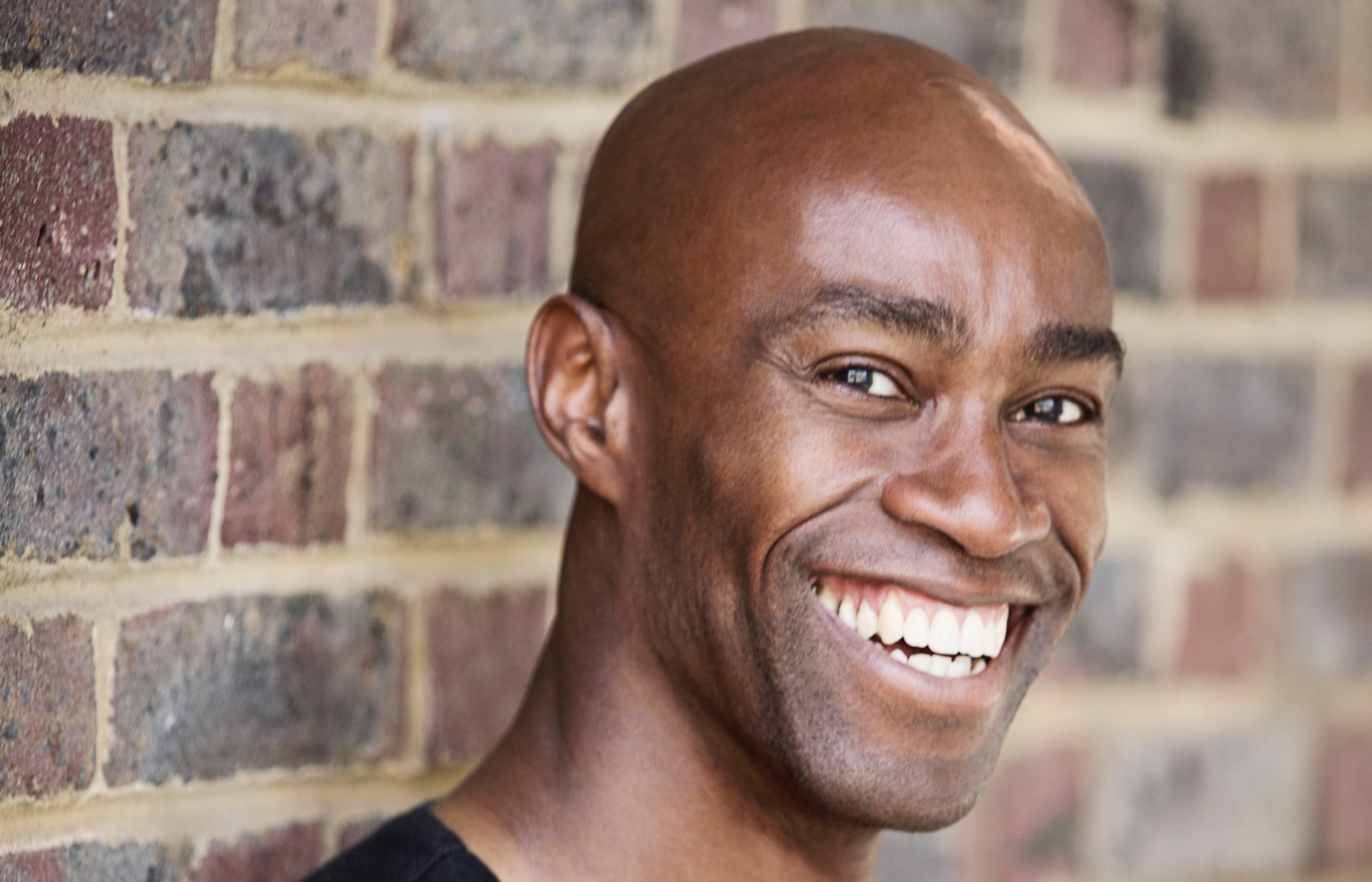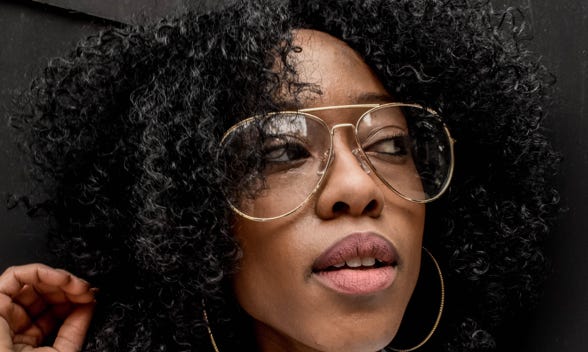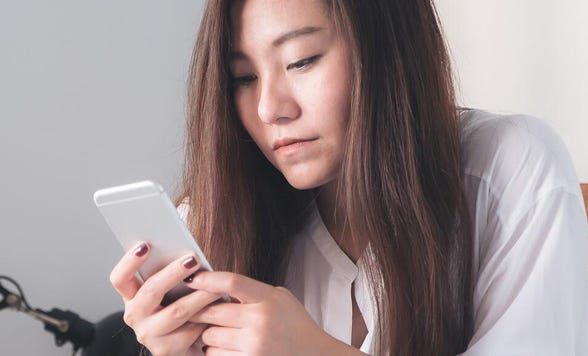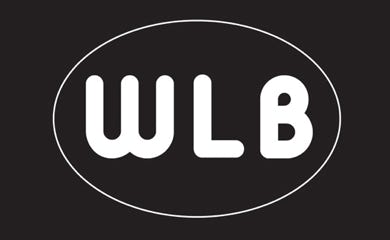Out of thought came the word
Racism, Commitment-Phobia, Trust Issues - Looking For Love Online - The Best & Worst First Online Dates On UK Dating Apps
AS A 50-SOMETHING SINGLE Londoner looking for love, I was shocked to find online dating apps and first dates riddled with racism, emotional issues…but also love. By Ben Arogundade. June. 26, 2020.

LOOKING FOR LOVE ONLINE: When 55-year-old author Ben Arogundade began using online dating apps for the first time, he encountered racism on some first dates, as well as a host of emotional amongst middle-aged singles.
I WAS SUDDENLY SINGLE. After six years with my partner, she announced that it was over. The news was abrupt, her reasons vague. She was crying, but I was not. I was too stunned. There was no discussion or exchange of views — she had decided. It was as if, in the rulebook of how to break up, she had torn out the pages of the final chapter. Disagreements, rows, eating meals in silence, sleeping in separate rooms: these things were all missing from our end sequence.
And so, in a flash she was gone, and I was unexpectedly single at 52 years old. Like all single people my age, when I first started dating, Tinder, indeed the internet, did not exist. I had met all my previous girlfriends the old-fashioned way — at parties, dinners, bars and clubs. As a citizen of the world’s most multicultural city, I have dated women of all ethnicities over the years. I met my last girlfriend at a charity gala event in London’s Park Lane, where I was seated for dinner at a round table next to her. She had long curly black hair, sparkly eyes and a warm smile. We talked and laughed for most of the evening, and then exchanged details. Soon afterwards we became boyfriend and girlfriend. The way we met seems so quaint now — and with it I now realise that with the advent of digital, meeting a partner this way may never happen to me again.
This is now the age of the apps.
LOOKING FOR LOVE ONLINE
Online dating has become the most popular way we find romance. Officially, more couples now meet online than off. This is certainly the case in America, and the UK will soon follow. Many dating Luddites of my generation struggle with this reality, just as they did when CDs and mp3s replaced vinyl — but history tells us that when digital claims a culture, resistance is futile. So I signed up to four apps — Hinge, Happn, Guardian Soulmates and Tinder. At first I was terrified by the massive volumes of available singles, all corralled together like items in a vending machine, but pretty quickly women began responding positively to my online profile. I received a range of messages, some saying that I looked young for my age, while others commented on certain photographs they liked. One woman messaged me and simply said, “Hey.” I thought there was a problem with the text, so I waited some time for the rest of the conversation to arrive. Then I realised that was all of it. Is that all you have to say? I thought. What is this?
On Tinder I was shocked to discover that most of the profiles contained no text, just pictures. Who wants to date someone who has nothing to say? I thought. How did we, in a democracy, all become so socialised into silence, into self-erasure? Many of the pictures I discovered were just as disturbing. Narcissistic, semi-nude mirror selfies; naked torsos with heads and lower bodies digitally severed; materialistic, out-of-touch males offering women their cars, mansions and large fish. What is all this madness? How can anything good come of this?
FIRST ONLINE DATES
Nevertheless, I was glad of the attention I did get. It is amazing how effective a little slice of adoration can be as an emotional antiseptic. I soon had my first date lined up. We met in the foyer bar at London’s South Bank Centre, ground zero for the capital’s online daters. We were both very nervous. She had green eyes and long hair swept to one side of her head, which she startled fiddling with in those initial uncomfortable seconds. I ordered red wine, and she had a gin-and-tonic. But things didn’t go well. I didn’t fancy her, although I’d tried to hide it in those opening seconds. She didn’t look like her online photos — she was older in real life, and wore more make-up. She was smart and chatty, but I also detected a sadness within her, just as there was within me after my painful breakup. Perhaps she too hadn’t recovered from whatever had happened to her? I tried to appear interested, and nodded appreciatively at everything she said, but my mind was in the past. It was only when I was actually sitting in front of her — a new person — that I realised how unrepaired I actually was.
I was glad when it was over. We stepped out into the street and I said goodbye, and she mentioned that she’d had a good time. I nodded and thanked her for coming out. People often talk about how hard first dates are in those first few seconds when you meet someone that you don’t fancy, but it is the leaving that is much harder, when you know you will never see them again, but you somehow pretend that you might. I turned and walked toward the Tube. But as I stared out into the darkness of the night, I was suddenly engulfed in sadness, as memories of my ex came back to me in waves. I started to cry as I walked, and I was surprised at myself that it was happening. Nigerian men don’t cry. What the fuck! As my crying began to intensify I was suddenly aware that someone might see me, and so I wiped my eyes clumsily and disappeared quickly into the Underground.
AFTER THIS I DECIDED TO QUIT the apps and wait until I had healed. I went back on again about eight months later. It was clear to me that as an older single person, who works alone, and who has a reduced social life, online dating is the fastest way to meet new people, and of every conceivable type and situation. In this regard it actually works better than the old way ever did. I quickly deduced that the majority of single women within my age range were typically divorced professionals who were juggling demanding jobs, young children, tricky ex-husbands and being perpetually exhausted. Many lived outside London and were struggling to find the time to accommodate the romance they were seeking. I came to realise that, as a 50-something single person, the most critical factor in evaluating a potential new partner was availability and logistics, or A&L, as I call it. If there was such a thing as an A&L questionnaire, it would ask:
How much availability do you have to be in a relationship?
How far away do you live?
Who will do the travelling when we meet?
How much will it cost to get there and back?
Do you have time during the week, or is the relationship weekends only?
How old are your children?
How much time off do you have from them?
Will I have a surrogate role to play with your kids?
How tricky is your ex, and will I have to deal with the motherfucker?
This list at first might seem cold and unromantic, but then so is swiping the faces of strangers on a phone. I once dated someone with two children under 10, who only saw their father every other weekend. I was expected to fill that gap, even though we hadn’t known each other very long, and also I have my own son. Meanwhile, in the background, her ex was still arguing with her over the children’s schooling and other emotional residues around their divorce. There was a sense that I was in the middle of someone else’s hurricane. On other occasions I have dated women who lived outside London, but I didn’t factor in the cost, time and fatigue of constantly travelling, and how this put a strain on each relationship. In the end I concluded that long distance relationships are unworkable for mid-lifers, because those involved are usually rooted to where they live, as they have mortgages and kids at local schools. They can’t just up-and-leave for love, like they can in their 20s.
MY ONLINE DATING PROFILE
These experiences made me understand the importance of A&L, and the fact that for mid-lifers, love begins with pragmatic choices that the apps ask you for when you sign up and configure your preferences. Romance happens in phase two, if we’re lucky. In an arena with thousands of candidates, it is crucial to narrow the field by making choices about A&L. Armed with these parameters I revised all my online dating bios. This was my Tinder profile text:
6ft 1in, made in Nigeria, born in London; got a big-mouthed smile wider than Julia Roberts’; into sports, the arts and walking in nature under big skies. I am short-sighted too, so you will look great forever.
Would love to hear from you if your values are emotional and spiritual, rather than material; ideally slim, fit, healthy, tallish, smart, funny, non-smoker, living in London. I am 52, with a 23-yr-old son. Wordless profiles I generally swipe left.
ONLINE DATING FROM AFAR
I thought such clarity would help, but despite stating my A&L, many of those I matched with ignored or did not read what I had posted, as is often the case on swipe-based apps. I was contacted by a woman in her 40s with two young children, who lived in Aberdeenshire, Scotland. It was the word, “shire” that scared me. It meant that she lived, not in the town, but further out in what was already a far away place compared to London. How could this possibly work? There was no way I could just pop up there for a coconut cappuccino, and then get the Tube back. Soon afterward that I was messaged on Tinder by a 41-year-old with Kim Kardashian-style curves, who also lived far away. The conversation went like this:
“Hi, thanks for connecting,” I wrote. “Do you mind if I ask, your profile says you are currently 15,160 kilometres away. Are you on holiday?”
“No, I live in Australia,” she replied. “I thought it was a good idea to try and expand my horizons.”
“Really? But how do you see us meeting up? You’re not exactly around the corner.”
“Alright then. Good luck.”
And that was that. I wondered if she was really looking for a boyfriend. Perhaps she was just lonely, and wanted someone to talk to? Or maybe, like me in my first online moves, she was using dating apps, not to find love, but to revalidate herself. I regularly encountered single people like this who had not fully thought through their choices. While they seemed sure about wanting to be with someone, they had not considered the practicalities of A&L. On another occasion I connected with a woman who slowly revealed that she was actually six-months pregnant with a sperm donor baby, and was looking for a boyfriend that would also be a father. “Can’t we just start with coffee?” I joked. When I then asked her how she thought starting a relationship under these circumstances might work, she confessed that she hadn’t really thought about it.
TRUST ISSUES
By far the most prevalent emotional issue I came across was a mistrust of men. Many of the women I met felt let down or betrayed by their ex-husbands and former partners, and this had made them cynical and wary of anyone new. I briefly dated a woman I met on Bumble who assumed and expected that it was only a matter of time before I — as a man — cheated on her in the same way that her ex-husband had done. I was entering into a relationship in which, from the outset I was not trusted, not because of my actions, but those of a man who had gone before me. I was inheriting the legacy of his misdemeanours, like old luggage or hand-me-down clothes.
Overall, I was surprised at how badly behaved us 40 and 50-something daters were. Typically, we have expressed horror at the online dating rituals of the young, shaking our heads judgementally at the morally questionable things they get up to — but mid-lifers are worse. We are supposed to be mature — we have raised children, we have impressive jobs and life experience — we are supposed to know better. But we don’t. During my time online dating I was regularly ghosted, ignored, stood up, verbally abused and used for sex — all by professional women in their 40s and 50s. And the men are no better. I have spoken to many online dating female friends who report stories of abusive texts, “dick pics” and married men lying about their circumstances.
RACISM ONLINE AND OFF
The most shocking encounters I had were with white women who expressed racist views. I was once messaged by a divorced Englishwoman with two children who had never dated a black man before, and who, in her post-divorce, refurbished state, explained that she was “trying something new” by connecting with me. Trying something new? I said to myself. “What am I, a salad? She told me, without any embarrassment, that sex with a black man was an item on her bucket list, alongside other post-divorce “experiences”, like trekking in Nepal or zip-lining in Costa Rica.
On another occasion I went on a first date with a white divorcee who lived in the commuter belt outside London. She took the train into Victoria, and we met at South Kensington station. She was tall and beautiful, and wore a full-length red shirt-dress and pumps. We went to a wine bar adjacent to the station, and I ordered us two glasses of red. As we settled down, I asked her why she’d messaged me.
“You looked fit, and I thought you were a playa,” she boldly replied.
“Really? But…I didn’t say I was a playa in my profile.”
“I just assumed you were.”
She later admitted that she had seen a black face and automatically equated it with promiscuity. She’d read me sexually, rather than as a family man or a loving partner. I got the impression that, to her, black men were “fuckers, not fathers”. My heart sank. Sometimes, when I have mentioned that I was looking for a relationship rather than casual sex, this was met with surprise, as if I was going against type. You want love? What kind of black man are you? It seemed that something deeper was at play here. I realised that some of those I was attracting were emotionally wounded women who had been hurt by their ex-husbands, and so had became fearful of loving again. One or two of them told me this after I asked them what they were looking for. The assumption that I was promiscuous, and therefore also untrustworthy, made me a good conceptual candidate for their commitment-phobic state.
With each encounter with the women described, I jokingly pointed out the racism implicit within their assumptions — and I say “jokingly” because this is the only reaction that works, in terms of challenging their views. Anger doesn’t play well on a first date — and besides, “angry black man” is yet another stereotype we are already dealing with. I felt a sense of duty to inform, as the first black man many of them had ever dated. Their real life opinions about black people were hanging on my conduct.
USE HUMOUR OR FAIL
Using humour as a tool also meant that they didn’t feel judged or threatened by me, and so they were more candid about their prejudices. One woman felt comfortable enough to tell me that there was no doubt in her mind that black men were biologically and sexually different to whites. She had no idea that this was the same theory once put forward by white physicians in the seventeenth century, during the era of so-called “race science”.
In most cases that I encountered these ideas, it was the first time the women had ever considered that they might harbour racist views. Although they all either lived or worked in London, the world’s most multicultural city, almost everyone in their lives were white, and so their assumptions about race had never been challenged, until now. What was shocking was the extent to which intelligent women such as these were simultaneously unintelligent about cultural life outside of white values. I remember meeting one woman whose entire frame of reference for her prejudices about blacks were based on what she had seen on television and on YouTube.
ONLINE DATING SEX
In so many areas of society, blacks are required to be “more than” in order to be accepted, and for many this is also true in the bedroom. This is not sex as we know it, as an act of pleasure, but sex as performance, defined by race. I was unhappy about being seen as a hydraulic appendage rather than a person. The next woman I met online expressed the same unconscious prejudices. Despite her misconceptions, she was funny and charming, but when it came to sex I deliberately tried to make the experience, let’s say, ordinary. I wanted to smash the stereotype. I wanted sex to be normalised, finally, the way it is for white men.
Of course, the flipside to all this is that some black men are promiscuous, and have no issue with sexual stereotyping, as it gives them the edge over their white rivals in the online dating marketplace. My moral perspective is specific to my age, as a more mature online dater, but there are many young black men who are having fun on Tinder sleeping with white women who racially objectify them. Some of the young black men that I play football with laugh at my concerns, and tell me I’m over-thinking it. They say I should just relax and be happy I have interest from women, whatever their motivation.
SEX STEREOTYPES
My experiences suggest that online dating is often more harsh for black men than it is for their white counterparts. It is black women however, who are subject to the greatest levels of online abuse, facing threats both on the grounds of both gender and ethnicity. Style blogger Stephanie Yeboah encountered this during her time online dating. “Some blatantly exclaim that they would want to be in a relationship [with me] to ‘get a taste of jungle fever’ and to see whether black women are ‘as aggressive in bed as they’ve heard,’” she told ‘The Independent’. This is in addition to the fact that black women are unpopular choices amongst male online daters. A recent blog post by Christian Rudder, co-founder of OKCupid, noted that data collected from heterosexual users showed that the strongest biases were against black women and East Asian men. Most males on the site rated black women as less attractive than women of other ethnicities, and that they receive 25 per cent fewer first messages on OkCupid than women of all other ethnicities.
The corrosive effects of regularly being abused or rejected within the online dating arena can take its toll on users. It is easy to see how women in general, but black woman in particular, can end up feeling more angry, sad, cynical and disillusioned than other groups. A month spent online dating can deliver more negativity than a person would normally experience in a lifetime offline. For blacks, who are subject to the gaze and prerogatives of whites, the challenge is to not end up resenting them, but rather to focus on the good, the non-abusers. As minorities we cannot change who is looking at us online, only our reaction to who is looking. In my case, being on the receiving end of racial stereotyping affected the types of pictures I posted. I was careful not to include any sexualized imagery such as naked torso selfies, which might perpetuate racial stereotyping.
AFTER ALL MY EXPERIENCES AND ANALYSES, I eventually found a way to make the apps work for me — through a combination of patience, resilience and by putting hours of work into my profile — yes, hours. Many forget that a dating profile is a resume, and should be treated as such in terms of the care and attention to detail that goes into them. For example, I saw many spelling errors in the profiles of people claiming to be serious about finding love. If a person can’t even be bothered to check their own work, how can they expect anyone to be bothered to date them? Most online daters I have encountered are reluctant to put serious time into their profiles, as they associate finding a partner with making very little effort — as it used to be — and so they expect the same online. This is a mistake. Because of the massive numbers active on dating apps, users have to work harder on their bios in order to stand out. A dating profile should never be static. Subscribers should run tests — regularly changing their lead photo and altering text to see what effect it has on who they attract. Research by online dating apps says that photos in which the person is smiling, and with eyes to camera, receive the highest volume of engagement, and yet most do not do this simple thing. Further, according to research by Instagram, posting video gets twice the engagement of photography.
THE EMOTIONAL DETECTIVE
The turning point in my journey came when I learned to become a better emotional detective. By analysing the words and imagery within online profiles, I began to make better choices. I was once messaged on Tinder by a woman whose opening photo showed her from behind, riding away on a bicycle. What was she trying to tell me? Was she shy, or afraid? Was she cycling away from intimacy? We are all the editors within our own narratives, and so choosing to display the back of her head instead of her face, as a way of introducing herself, must mean something. I made a rule that I would always swipe left on anyone who was concealing rather than revealing. By avoiding those who appeared not to be ready I was able to narrow the field further.
Many of us miss or ignore vital clues when assessing online candidates, and end up choosing those who are not right for us. We tend to focus on the aesthetic, sexual, professional and social reasons we are drawn to people, but what is harder to assess is psychological compatibility. Here are the three rules you need to learn in order to be an effective emotional detective:
1. As online, so offline
In other words, everything a person does online denotes character offline. For example, if during your online exchanges someone mocks you, or puts you down, they are likely to do the same thing in real life; or if a person posts multiple images of themselves with material things, they may be concealing the fact that they are struggling to express themselves emotionally.
2. Photography is truth
Many online daters post images in which they appear to be concealing themselves. Think about why people choose — and that is the word — choose to represent themselves in these ways. We are all the editors of our own narratives, and so these choices are not accidents, but hint at problems.
3. Writing is truth
The things online daters write can also be very revealing. For example, if someone seems keen to answer the questions you ask, but does not ask you anything in return, they may be a narcissist. Alternatively, someone who writes that they are “getting divorced”, may be emotionally unavailable, as they are talking in the present tense.
DESPITE MY NEGATIVE experiences, there were many high points. I connected with some women with incredible resume’s, and who were not motivated by racial stereotypes — psychotherapists, doctors and NHS directors, CEO’s, scientists, actresses, TV personalities and movie directors amongst them — and I have since become good friends with three great women after we realised we weren’t right for each other romantically. The actual dates with them went well, but we didn’t fancy each other, or our circumstances were not aligned. When people ask me if I have been successful online dating, I say yes, on this basis. For me, a good date is one in which I have gone out and come back safely, having met someone and learned something. Many disagree with this, because they consider that everything to that does not lead to romance or sex is a waste of time. But we are all the sum total of every experience we have ever had with those we have met, however fleetingly. We are defined, nourished and also damaged by these interactions, as every encounter adds to our personal data bank, deepening our knowledge and experience. I felt that I had gone beyond romance in connecting with these people and listening to their stories.
LOVE ARRIVES
I am happy to report that I also found romance on one of the dating apps. She is white, 47 years old and, like me, works in the media. She messaged me first, but when I looked at her profile I saw that her attractiveness was obscured by her choice of pictures. There were not many of them, and in her lead shot she was looking down with her eyes averted, as if she was shy or afraid. But the sense of vanity and narcissism so characteristic of many online profiles was absent from hers, and this stood out for me. There were no mirror selfies or images of her in tight or flesh-revealing clothing. Pleasingly, her written text contradicted her photos — she was honest and open, and we seemed to like the same things — film, podcasts, books, Radio 4, running, Premier League football, red wine and cheese — result! Her A&L was also a fit. She lives in London, has two children in their late teens, who don’t need surrogate parenting and are close to leaving home, plus an ex who is not causing trouble in the background. Emotionally, and physically, she is available.
She was so open in her bio that we met up very quickly, after just two or three messages. We went to a pub in Holland Park after work one night. I’d stated beforehand that I could only meet for an hour. One of my rules is that all first dates should be cheap and short. I got there first and waited at a corner table with our drinks — red wine for me, vodka tonic for her. When she arrived she was dressed unpretentiously, in jeans and a simple top, and the first thing that struck me about her were her deep-set eyes, which were ringed with shadow under the light. The attraction was instant. We both frowned and looked at each other for a moment, as if we’d met before. There was a logic-defying sense of ease and familiarity, and we both smiled — we’d found each other, at last.
My new book about online dating is out now. Take a look!
An abridged version of this article was originally published in The Guardian newspaper.
My Terrifying,
Shocking, Humiliating,
Amazing Adventures
In Online Dating, by
Ben Arogundade

“Fantastic.”
The Telegraph
“Extremely educational.”
GQ
“Intriguing and powerful.”
BBC Radio 5 Live
“Extraordinary and revelatory.”
whatwesee.com
Author Ben Arogundade recounts his journey as an online dater, during which time he was stood up, verbally abused, propositioned for sex and asked to be a father to an unborn child. Along the way he offers singles the secrets and best practices they need to know to boost the quality of their matches, and presents the latest strategies, research-based guidelines and innovations to take their online profiles to new levels of excellence. Get it now at Amazon, £9.99/$12.99.
More About Online Dating Apps
© White Labels Books, London Town 2025: Registered Office: 85 Great Portland Street, First Floor, London W1W 7LT



